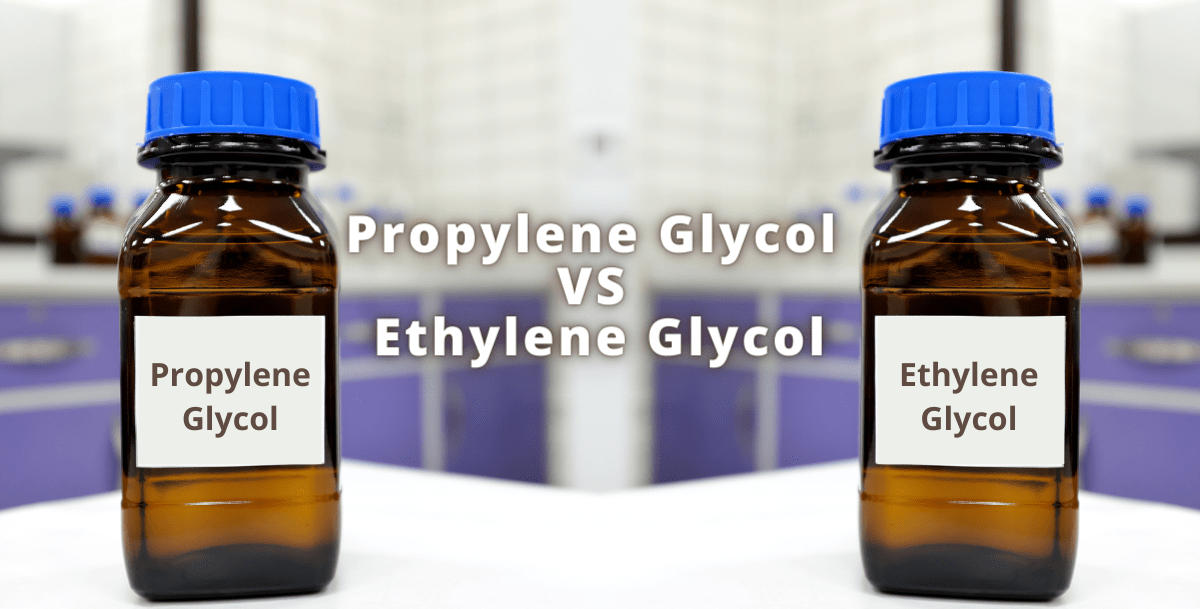Is propylene glycol the same as ethylene glycol? The short answer is no. While propylene glycol and ethylene glycol may have some similar properties, the biggest difference between the two is the toxicity level. Propylene glycol has a significantly lower toxicity level than ethylene glycol. For this reason propylene glycol is often preferred over ethylene glycol, as it is low enough in toxicity to be used in personal care products and cosmetics, while ethylene glycol requires extreme caution with use and is very poisonous to humans and animals. For these reasons, it is very important that you understand the differences between these two chemicals before purchasing. If you are in need of chemicals or solvents like propylene glycol or ethylene glycol, Ecolink can help you find the best chemical for your needs.
Propylene Glycol VS Ethylene Glycol – Uses and Differences:
- Toxicity – As mentioned before, one of the key differences between these two chemicals is the toxicity level. Ethylene glycol is a VOC (volatile organic compound) that is incredibly poisonous and requires extreme caution when being handled to prevent exposure. Propylene Glycol on the other hand has a lower toxicity level and can be used in various food products, medications, and personal care products to control moisture levels.
- Propylene Glycol Uses – Propylene glycol is used for a variety of products including food coloring, paints, plastics, cosmetics, skin care, artificial smoke & fog, and many other consumer goods. The main function of this chemical is to absorb excess water and maintain moisture.
- Ethylene Glycol Uses – Ethylene glycol is notably used as a deicing agent. Ethylene glycol is present in products such as antifreeze and hydraulic brake fluids that are used to prevent engines and other mechanical products from freezing in cold temperatures.
Need more information on propylene glycol and ethylene glycol?
So, is propylene glycol the same as ethylene glycol? No, but Ecolink is here to help you better understand these two chemicals and determine which is best for your needs. Contact Ecolink here, to get expert help in finding the best high quality, affordable chemicals for your practice.















